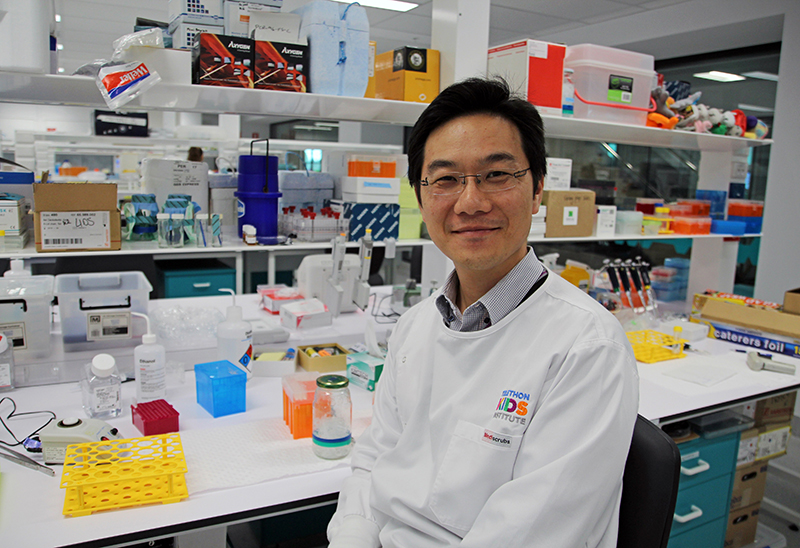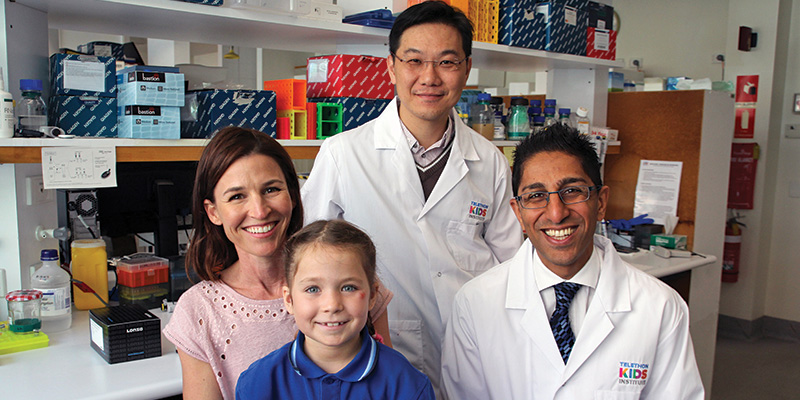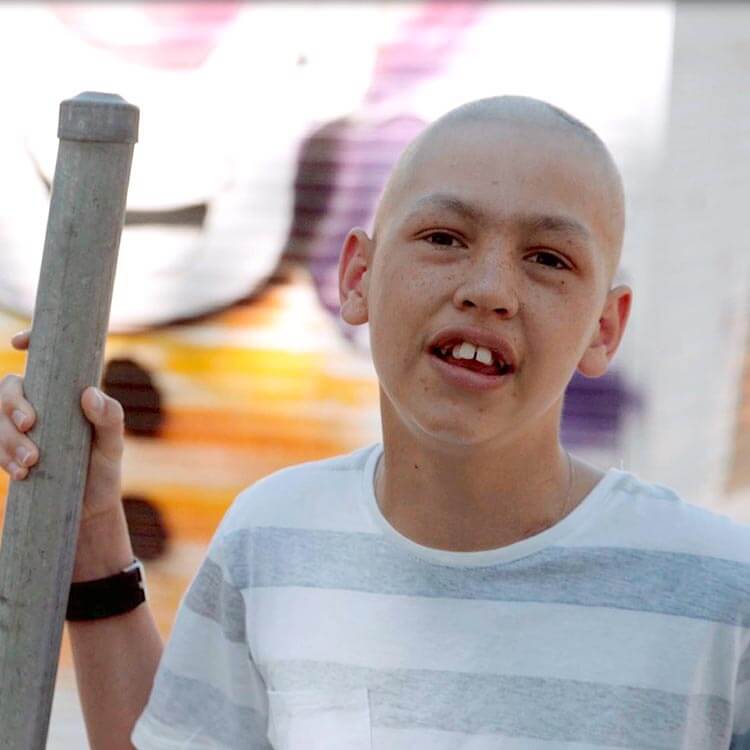Search

News & Events
Working to end childhood cancer: A father’s storyDr Laurence Cheung is doing everything he can to end the threat of childhood leukemia. His research has the potential to change countless lives, but he also has another important job – being a dad to three beautiful children.

News & Events
Replication of rare aggressive brain cancer could pave the way for better treatmentsIn an Australian-first, The Kids Research Institute Australia researchers have developed a new tool that could improve outcomes for children with a highly aggressive type of brain cancer.

News & Events
Researchers unlock key to slowing leukaemia progression in kidsWhen three-year-old Flo Parker injured her hip on a camping trip five years ago, her parents thought it would be nothing more than a common childhood injury.

News & Events
'Natural killers' potential new cancer weaponThe Cancer Immunology team at The Kids is investigating how the body's 'natural killer' cells can be harnessed to fight cancer – whilst also protecting kids from nasty chemotherapy side effects.

News & Events
The Kids researchers share in $1.75m ACRF grant for cancer researchThree The Kids researchers are collaborating on a cancer research project that has been awarded a $1.75mill grant by the Australian Cancer Research Fund.
News & Events
Ependymoma Awareness DayEthan was not even two when he was diagnosed with a rare type of brain tumour known as an ependymoma.
News & Events
Experts Pledge Global Assault on Kids’ CancerA global plan to tackle one of the most aggressive types of childhood brain tumours will be developed as a result of a meeting of international experts in WA.

News & Events
Telethon supports vital child health research projectsThe generous support of West Australians through Channel 7’s Telethon Trust will help support crucial child health research at The Kids Research Institute Australia in 2022.
Research
The Challenge of Diagnosing Invasive Pulmonary Aspergillosis in Children: A Review of Existing and Emerging ToolsInvasive pulmonary aspergillosis remains a major cause of morbidity and mortality for immunocompromised children, particularly for patients with acute leukaemia and those undergoing haematopoietic stem cell transplantation. Timely diagnosis, using a combination of computed tomography (CT) imaging and microbiological testing, is key to improve prognosis, yet there are inherent challenges in this process. For CT imaging, changes in children are generally less specific than those reported in adults and recent data are limited.
Research
Antifungal use in children with acute leukaemia: state of current evidence and directions for future researchInvasive fungal disease (IFD) remains a common and serious complication in children treated for leukaemia. Antifungal prescription in children with leukaemia presents unique challenges, particularly due to variation in IFD risk between and within leukaemia treatment protocols, drug toxicities and interactions between antifungals and chemotherapeutic agents.
